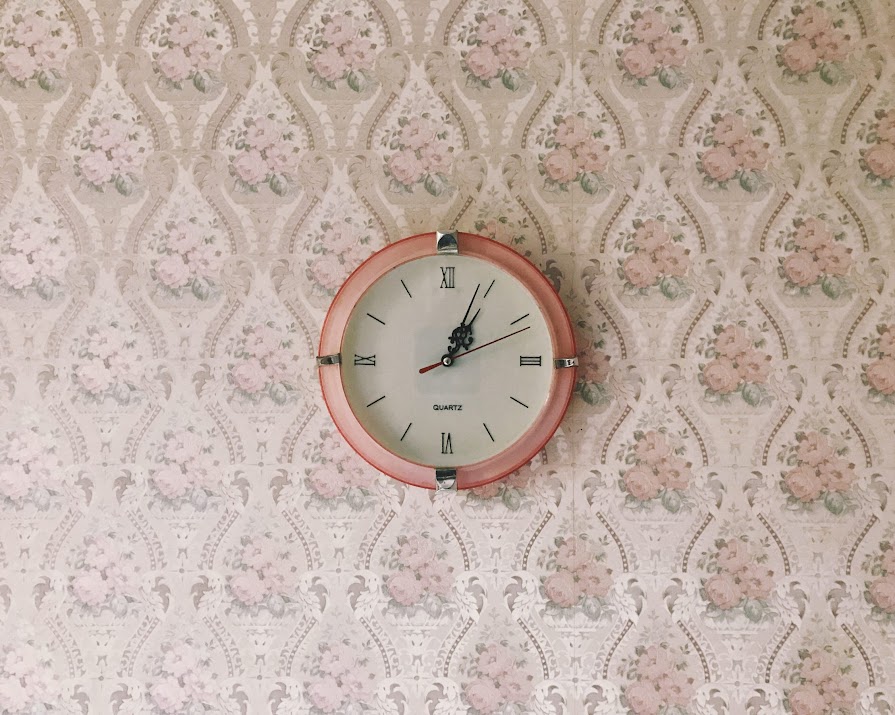By Geraldine Carton
08th Apr 2019
08th Apr 2019
If you are like us, and you find yourself filling with an intense rage whenever the person you’ve arranged to meet arrives late (again), then you may want to read on.
Whilst we’re not letting anyone off the hook for bad timekeeping, it’s worth considering why an otherwise competent and thoughtful individual just can’t manage to keep to a timeline…
Maybe they like the feeling of power that comes with having someone wait for them; maybe they actually interpret time differently to you (yes, this is a thing); and maybe they genuinely can’t help it. Although we all know how infuriating it is to constantly be left waiting and made to look like a spokesperson for the Lonely Hearts Club, it’s worth recognising why people get engulfed by this pattern of recurring tardiness.
If nothing else, gaining a psychological understanding of the underlying factors at play may just reduce your blood pressure in the long run; as you gain a calm acceptance that there is often more going on with a chronic latecomer than meets the eye.
Without further adieu, here are seven personality types of people who are ALWAYS late.
The Optimistic Multitasker
One of the most obvious and common reasons for why someone might be continuously late to meet you is because they fall prey to “planning fallacy”, which is the failure to accurately assess how long it will take to get from point A to point B. Planning fallacy culprits are also known for being overly optimistic multitaskers; thinking they can squeeze more into a space of time than they actually can. Truth be told, we’ve all experienced the above in our own lives at some point or another.
The Perfectionist
Another reason for tardiness is one that raises its head amongst those who recoil from it the most profusely; the perfectionists. These people hate to be late, but unfortunately for you, they hate to leave a messy home even more. It really is as simple as that.
The Nervous Fergus
Maybe none of the above psychological conditions is to blame, maybe your brunch buddy simply wants to avoid the awkwardness of being the first to arrive; the solo waiting around, the sudden hyper-consciousness of people staring at you. These individuals might just lack the self-confidence of holding their own, so they might require a little patience and understanding in that respect.
The “Time is money” Type
For some, the perceived inefficiency associated with wasted time (i.e. time spent idly sitting around as you rush in 15 minutes late after missing your bus) is too much to take. These people are often busy, high-voltage individuals who seek to optimise every minute of their lives. They are not unlike the multitaskers in their time-squeezing behaviours, but they will often be late on purpose to ensure that they are not the ones left waiting around. It’s not that they don’t value your time, they just value their’s more.
The Deadliner
Meet the “Deadliner”; that person who might not actively try to be late, but can’t help but get a thrill from the adrenaline rush that a speedy, last-minute transit or outfit change involves. These are the kind of people who excelled at late-night cramming before exams in school; the ones you resented so much over all those years.
The Defier
There’s no denying it, Defiers are a little trickier. These are people who constantly feel the need to stand up against authority; walking to the beat of their own drum (and timeline). Usually, their resistance is totally subconscious, but when you say “let’s meet at 7?”, and they reply with “yeah sure sounds perfect!”, often what they really mean is, “I’ll meet you when I’m good and ready to meet you”. Thus, you can interpret their delayed arrival as a mini protest – not against you, per se, but against societal expectations at large.
Type B versus Type A
In 2001, Jeffrey Conte and his team discovered that achievement-oriented Type A individuals are more likely to be punctual, whilst the more “laid back” Type B individuals tend to lag behind and arrive late. The study then went one step further, discovering that Type A and Type B people actually feel time pass differently. Through a series of studies, Conte found that a minute passed in 58 seconds for Type A individuals, whilst Type B’s felt a minute pass in a leisurely 77 seconds.
That’s an 18-second gap every minute, which can really add up over time…
More like this:
Six modern dating terms you need to know if you’re on the market… Read here
This is why you should ALWAYS accept the drink offer in an interview… Read here























